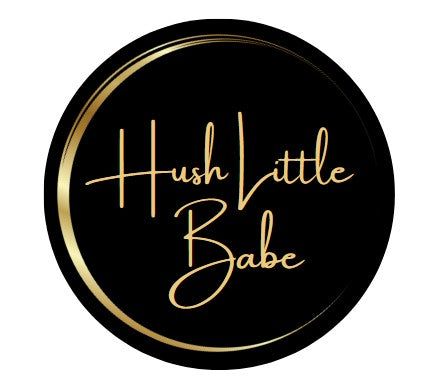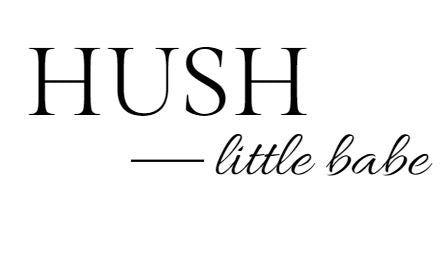Modern cloth nappies or disposable nappies - which is better? You decide....

As a mumma-to-be, you have lots of decisions to make. Home or hospital? Breast or bottle? Modern cloth or disposable nappies? The list of things to consider is endless.
Within hours of your baby entering the world, you’re going to need nappies.
So, which is the right choice for your family?
To save you some hassle, we’ve compiled a list of the advantages and disadvantages of each nappy type. There are lots of myths out there, especially about modern cloth nappies, so we’ve put together this list of facts to make this decision easier for you.
First, let’s consider some of the most important factors to consider when it comes to choosing nappies.
Disposable nappies vs cloth nappies – environment
Many cloth nappy parents cite environmental reasons as their motivation for choosing cloth diapers. Reusable nappies are the obvious choice if you’re worried about the planet.
Unlike disposables which take years (and years and years) to break down, cloth nappies are a more sustainable choice.
Billions and billions of disposable nappies are sent to landfills each year. It’s thought that each disposable nappy could take as long as five hundred years to break down, so the nappies you dirtied as a baby are still out there. Reusable nappies are a great alternative if you want to break the cycle.
Some parents choose biodegradable disposable nappies as a compromise, but are these really better for the environment? Yes, because some nappies can biodegrade, but it’s important to be aware that there are no 100% biodegradable nappies. Most biodegradable disposable nappies are only around 60-80% biodegradable, under ideal conditions.
Cloth nappies vs disposable nappies – cost
Cost is an important factor when deciding which items to purchase for your baby. For example, some parents avoid cloth nappies because of the higher initial cost.
A bundle of reusable nappies will cost you much more than a supermarket pack of disposable nappies. But, of course, those nappies will last you a lot longer, so many would argue it’s a worthwhile investment. However, some parents will be put off by the high starting price.
It’s also important to factor in the cost of regular washing and drying cloth nappies, especially if you’re on a tight budget.
Advantages of modern cloth nappies
If the vision of your little bub wrapped up in a natural, earth-friendly nappy brings a smile to your dial, then read on. You’ll love this part.
- Modern cloth nappies contain no harmful chemicals or plastics. It’s à la naturel, baby. Literally. You can even pick up organic cloth nappies made out of cotton or bamboo
- Reusable diapers have less of an impact on the environment than disposables
- You have the freedom to choose from a variety of stylish modern cloth nappies.
- Despite what you might think, modern cloth nappies are less smelly than disposables
- Although the initial purchase of your supply of reusable diapers will cost more, many believe it’s cheaper, in the long-term, than using disposables
- Because you’re washing your modern cloth nappies, your bin doesn’t fill up as fast, and you’re not contributing further to all that nasty landfill
- Modern cloth nappies are said to prevent nappy rash
- Modern cloth nappies come in a variety of colours and designs, so they can be considered more aesthetically pleasing
- There are no harsh chemicals used to make modern cloth nappies, which means they’re great on sensitive bottoms
- Cloth nappies give your baby an adorably big bum
Disadvantages of modern cloth nappies
Okay, now for the reality check. Are you ready for it?
- You can’t just throw away the used nappy; it needs to be washed. Not a huge deal, but it is more time-consuming
- The one-off payment for modern cloth nappies is higher than you would usually spend on a short term supply of disposables
- You need to be extra cautious with washing and drying your nappies to ensure they are clean and sanitary. Managing modern cloth nappies also takes more time (and washing detergent)
Advantages of disposable nappies
And now it’s time for the opposing team to take the stand. Benefits of ordinary disposable nappies? Comin’ right up.
- Disposable nappies are ultra-convenient
- Disposable nappies have a high absorption capability. Technologies such as special crystals pull the liquid away from the skin, preventing nappy rash.
- Disposable nappies require no washing or drying. Just toss and go!
- They are readily available at most supermarkets and department stores
- Many brands now offer biodegradable and organic disposable nappies.
Disadvantages of disposable nappies
With the good must come the bad. So here are the negatives of disposable nappies:
- They are largely believed to contain chemicals and materials that might irritate your baby’s skin.
- They are not as environmentally friendly as cloth diapers and contribute to landfill
- Once in landfill, disposable nappies take at least 200 years to decompose
- Disposables are considered more expensive than cloth diapers in the long term
- Disposable nappies also involve trial and error as you find the right size and fit for your baby
- Despite instructions on the packaging, most people incorrectly throw disposable diapers straight into the bin with the poo still inside. While decomposing, the human waste lets off methane (one of the most damaging greenhouse gases) and might even pollute the groundwater.
Cloth nappies vs disposables
In this article, we’ve looked at some of the differences between cloth nappies and disposables so you can make an informed decision. You can consider your unique family situation and priorities and work out which type of nappy is best for your family.
So, what do you think? Have you chosen yet?
Selecting the right type of nappy for your baby is an important decision and one that should feel right for you, irrespective of what others around you think.
Do your research and examine the options, but the choice is ultimately yours.
And besides, it’s not like you can’t switch sides or use a combination of cloth and disposable. So why not try both and see what works best for you and your bub?
How many cloth nappies do I need?
If you’ve decided to invest in some cloth nappies, you’re probably wondering how many you’ll need to buy. The great thing about cloth nappies is that they can last for years; you could even manage to cloth diaper more than one child in them.
15 cloth nappies (though 20 will give you some breathing room to space out washes) is all you will need.
Are newborn cloth nappies worth it?
Yes, it’s worth buying some newborn-sized cloth nappies for your newborn baby. Most reusable nappies offer a one-size nappy designed to last from birth to potty training.
Check out our cute range of cloth nappies here Cloth Nappies and Pull Up's – Hush Little Babe

















